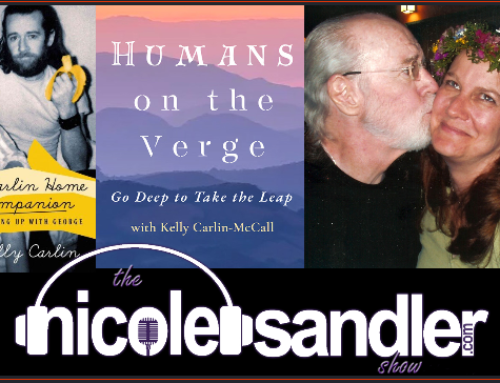
I’d always nod along when Randi Rhodes would say that it’s not if it’ll happen, but when. And I, like she, always wondered what the catalyst will be that finally lights the fuse.
Back in 2010, the spark that begat the Arab Spring was one of those proverbial straws breaking the camel’s back– a Tunisian fruit vendor set himself on fire to protest his government’s treatment of himself and his fellow citizens along with its brazen corruption.
Before dawn on Friday, Dec. 17, as
[Mohammed] Bouazizi pulled his cart along the narrow, rutted stone road toward the market, two police officers blocked his path and tried to take his fruit. Bouazizi’s uncle rushed to help his 26-year-old nephew, persuading the officers to let the rugged-looking young man complete his one-mile trek.The uncle visited the chief of police and asked him for help. The chief called in a policewoman who had stopped Bouazizi, Fedya Hamdi, and told her to let the boy work.
Hamdi, outraged by the appeal to her boss, returned to the market. She took a basket of Bouazizi’s apples and put it in her car. Then she started loading a second basket. This time, according to Alladin Badri, who worked the next cart over, Bouazizi tried to block the officer.
“She pushed Mohammed and hit him with her baton,” Badri said.
Hamdi reached for Bouazizi’s scale, and again he tried to stop her.
Hamdi and two other officers pushed Bouazizi to the ground and grabbed the scale. Then she slapped Bouazizi in the face in front of about 50 witnesses.
Bouazizi wept with shame.
“Why are you doing this to me?” he cried, according to vendors and customers who were there. “I’m a simple person, and I just want to work.”
… After the slap, Bouazizi went to city hall and demanded to see an official. No, a clerk replied. Go home. Forget about it.
Bouazizi returned to the market and told his fellow vendors he would let the world know how unfairly they were being treated, how corrupt the system was.
He would set himself ablaze.
“We thought he was just talking,” said Hassan Tili, another vendor.
A short while later, the vendors heard shouts from a couple of blocks away. Without another word to anyone, Bouazizi had positioned himself in front of the municipal building, poured paint thinner over his body and lit himself aflame.
He was subjected to continued indignities, as enumerated in the Washington Post article. For example, as Bouazizi lay dying in the hospital burn unit, Tunisia’s dictator, Zine el-Abidine Ben Ali arrived, camera crew in tow.
The president made a show of handing (his mother) Manoubya a check for 10,000 dinars (about $14,000). But the mother said Ben Ali’s staffers took the check back after the cameramen were escorted from the room. “I never got any of it,” she said.
Three weeks later, Bouazizi died.
In early January, the policewoman was arrested, but it was too late. The story had spread, and three months later, a revolution that sprouted in a small village in Tunisia and flowered in Egypt has morphed into a contagion that threatens regimes in Bahrain and Yemen, has enveloped Libya in civil war, and is unsettling even the region’s more placid monarchies, such as Saudi Arabia and Jordan.
And thus, it began. The flame that Bouazizi used to light himself on fire was the spark that lit the fuse of the powder keg that had slowly heating, though decades of injustice, public humiliation and worse. It finally blew.
Revolutions are explosions of frustration and rage that build over time, sometimes over decades. Although their political roots are deep, it is often a single spark that ignites them — an assassination, perhaps, or one selfless act of defiance.
Of course, the word had to spread. Facebook was the conduit and nothing could stop it. And the rest, as they say, is history.
What will be the spark that mobilizes Americans?
Just before airtime this morning I checked the Nicole Sandler Show Message Board to find a new thread titled, “The Fire Has Been Lit! And It Starts In Ferguson, MO.”
An 18-year old young man named Michael Brown was walking down the street with his friend Dorin Johnson, headed for Brown’s grandmother’s house. According to Johnson, a cop pulled up next to them and said, “Get the F–k on the sidewalk.” And that’s where the details get sketchy.
The police say that Brown jumped into the police car and fought with the officer over her gun. Witnesses say that Brown ran from the car, only to be hit by a bullet, after which he put his hands up in surrender, only to be shot again in the face and the chest before falling to the ground dead.
Anonymous has taken notice, posting this video online today:
This show of police brutality comes only a week after another black man, Eric Garner, was killed by an overly violent show of police force.
The 43-year-old father of six, who was asthmatic, can be heard saying “I can’t breathe” several times in the footage, and the city’s chief medical examiner confirmed that much on August 1, when he ruled Garner’s death a “homicide by chokehold.”
The militarization of the American police was on global display during the Occupy Wall Street protests which began on Sept 17, 2011, when protesters gathered to occupy a park on, as the name implies, Wall Street.
On November 15, almost a year after Mohammed Bouazizi set himself on fire to protest police and government actions in Tunisia, police in New York City – decked out in full riot gear regalia – descended on Zuccotti Park, which the occupiers had renamed Freedom Plaza, arresting protesters and journalists alike, injuring many in the process.
Just two days later and thousands of miles to the west, a group of students at the University of California/Davis were exercising their constitutional right to peaceably protest by sitting, silently in a row along a sidewalk when a UC Davis cop walked methodically up and down the row, pepper spraying them.
That incident didn’t inspire enough nationwide outrage to get Americans out on the streets, nor did the news that said officer, Lt. John Pike, who was
placed on paid administrative leave after the incident and was firedeight months later in July 2012 – although an internal investigation actually found he had acted appropriately.
Appropriately?!?!?! How about the fact that he was then awarded $38,059 in a workers compensation claim, because
Pike, 40, had suffered depression and anxiety brought on by death threats to him and his family. The threats followed the 18 November 2011 protest, the newspaper reported.
Or how about Tony Bologna.. you remember him, right? The Manhattan DA declined to press charges, but the cop was docked 10 vacation days or equivalent pay. Plus,
The NYPD officer caught using pepper-spray on two female Occupy Wall Street protesters in September has been transferred to work in Staten Island.
While that might sound like enough torture for some, Bologna is apparently from Staten Island, so the transfer translates into a shorter commute for the 29-year NYPD veteran.
So, what will it take to light the fuse under Americans, to get us to go to our windows and show “I’m as mad as hell and I’m not going to take it any more!”?
I don’t know, but I guess it hasn’t happened yet…
Today on the show
After talking about the shooting by police death of Michael Brown, it was time to talk about our broken political system.
Howie Klein who blogs at Down with Tyranny and, along with Digby and John Amato, runs the Blue America PAC, joins me every Monday morning for The Steve Israel Hour, sponsored by Little Debbie.
It was an ugly weekend primary in Hawaii, where the “Republican wing of the Democratic party” had a good night. Governor Neil Abercrombie, the progressive sitting governor was
defeateddecimated by centrist David Ige.On the good news side, Howie announced that Blue America formally endorsed Zephyr Teachout in her bid to unseat New York’s ethically-challenged Andrew Cuomo. They’ve even set up a special Gubernatorial donation page here.
And finally, if you’re a regular listener of my show, you know that I think many of our problems are caused by the corporate control of our media. That’s one of the reasons I’m such a big fan of The Nation magazine. They’re truly independent with no corporate overlords or influence.
I was thrilled to welcome Katrina vanden Heuvel, editor and publisher of The Nation, to the show this morning to talk about the situation in Ukraine – and the fact that it’s nothing like what you’re hearing from the TV so-called “news” programs.
Katrina and her husband, Stephen F. Cohen, set the record straight using history and facts about what’s really going on over there in, “Why is Washington Risking War with Russia?”, a must-read if you want to know the truth. And for some more background, check out Cohen’s “The Silence of American Hawks about Kiev’s Atrocities.”
It was a great discussion that ventured into much more, and fascinating reading from very smart people whose goal is to report the truth. What a concept!
Tomorrow, the return of the Gliberal Goddesses and whatever else the day brings… radio or not!






